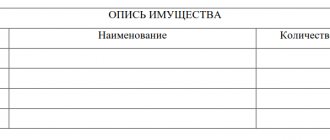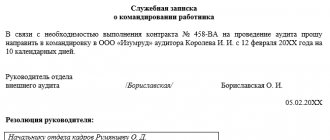The essence of commercial hiring
Russian legislation does not have separate rules that regulate the procedure for renting out housing as a commercial rental property. In the field of rental of residential premises, the rules of Chapter 35 of the Russian Civil Code apply.
Article 671 of the Civil Code of the Russian Federation states that renting is the provision of real estate to a tenant and his family for living. Premises lease agreements have a number of features:
- landlord - the legal owner of the property or an authorized representative;
- the employer is a citizen. Organizations, regardless of their form of ownership, can rent premises only under a lease agreement;
- the intended purpose of concluding a lease agreement is to use the property for residential purposes for individuals. Residential premises cannot be rented for commercial activities.
The right of ownership of a property provides the owner with a large list of powers in the area of housing disposal. The powers of tenants to dispose of an apartment are minimal.
If the contract does not stipulate the possibility of subletting the housing, the tenant has the right to live in the premises only with family members.
What it is
The legislation does not contain special rules regulating the procedure for drawing up a commercial lease agreement. For this reason, counterparties must use the requirements established in Chapter 35 of the Civil Code of the Russian Federation, with the exception of regulatory rules directly related to the hiring of social housing stock.
By hiring, Article 671 of the Civil Code of the Russian Federation means providing the tenant and his family members with a real estate property for temporary use. The contract for the commercial lease of residential premises is of a paid nature, this is directly indicated by Art. 671 Civil Code of the Russian Federation. It is possible to highlight the features of this type of agreement:
- the lessor may be the legal owner (proprietor) or a person authorized by him;
- the tenant of housing under contracts of this type can only be an individual, since such objects can be transferred to organizations of any form of ownership for temporary use on the basis of a lease;
- The intended purpose of this type of legal relationship is to use real estate only for the residence of citizens; conducting business or production activities in residential premises is not allowed.
Having ownership rights to residential real estate provides a full range of powers to dispose of real estate, including through the execution of a lease agreement. Other home owners (for example, tenants) do not have the right of disposal, and therefore are deprived of the opportunity to use the apartment for rent to third parties.
Terms of the residential rental agreement
In the process of concluding a lease agreement, the parties must agree on the essential terms of the agreement and additional points (optional):
- The subject of the agreement is the transfer for use of a specific property for a certain time.
- The contract period is the maximum period during which the tenant will be able to use the apartment for living. According to the rules of Article 683 of the Civil Code, housing can be rented out for a maximum of five years. If the contract does not specify a period, this period is the guideline.
- The amount of lease payments, which is determined by the parties independently. The contract also needs to specify whether utility bills are included in the rental price or whether they will be calculated independently.
- List of citizens who have the right to reside in this premises during the entire period of validity of the contract. The tenant has the right to move in only minors without the permission of the apartment owner. Move-in of other citizens is allowed only in agreement with the owner of the property. In this case, these persons must be included in the list of residents in the agreement.
- List of property located in the apartment and transferred for use to the tenant.
- Other conditions as agreed between the parties (for example, the timing and procedure for routine and major repairs).
Requirements for a real estate lease agreement
For a rental agreement to be legally binding, the following requirements must be met:
- mandatory written form of the lease agreement;
- conducting state registration of the concluded agreement (if the term of the agreement exceeds eleven months);
- availability of documents accompanying the signing of the agreement (passports of the parties, documents on marriage and birth of children, documents of title type for residential premises, act of acceptance and transfer of real estate, inventory of property).
If the lease agreement is subject to state registration, it is also necessary to attach a receipt for payment of the state duty.
How to conclude an agreement
To formalize contractual relations, the parties must comply with the requirements regulated by civil law.
First of all, it is necessary to establish which real estate objects can be transferred for temporary use under commercial lease conditions. According to Article 673 of the Civil Code of the Russian Federation, an object transferred on a lease basis must meet the following requirements:
- isolation - the living space must be fenced with building structures and have an independent entrance (exit) to the common property of the house or apartment, or direct access to the street;
- the premises must be suitable for permanent residence, i.e. comply with the rules and standards provided for by housing legislation;
- Not only the whole object, but also its isolated part (for example, an isolated room in an apartment) can be rented out.
Thus, the premises that will be the subject of commercial rental include: an apartment, a private house, part of an apartment or house.
To conclude an agreement, counterparties must agree on essential and additional terms of the transaction. They will include:
- the subject of the transaction is the transfer for temporary use of specifically agreed residential premises;
- rental period - the maximum period of the contract cannot exceed five years, this rule is established in Art. 683 of the Civil Code of the Russian Federation (if the period is not specified in the agreement at all, a five-year period will be applied);
- the amount of regular payments for the use of residential premises is determined by agreement of the parties (utility fees will be paid separately, depending on the actual consumption of resources or the number of residents);
- the list of persons who can be accommodated by a temporary tenant for the entire period of rental (for the placement and registration of minor citizens, this condition does not need to be specifically stipulated; such a rule is provided for by law);
- the composition of the property that is located in the residential premises and is transferred for the entire rental period;
- other conditions agreed upon by the parties (including the procedure for performing routine repairs, etc.).
To draw up an agreement of this kind, it is necessary to comply with the written form of the document; notarization is not required. It should also be taken into account that as a result of the lease, a restriction (encumbrance) of property rights arises, which is subject to mandatory state registration in the Rosreestr service. The registration rule must be observed only when concluding a contract for more than one year; this condition does not apply to short-term contracts.
commercial rental agreements for residential premises
To formalize the agreement, the parties will need the following documents:
- identification documents of both parties (general passports, birth certificates of children, etc.);
- title documents for residential premises (certificate of title, extract from the Unified State Register, etc.);
- commercial lease agreement and transfer acceptance certificate.
When applying for registration of an encumbrance at the Rosreestr service, you will need to submit a payment document confirming payment of the state duty.
Procedure for using residential premises
The legislation clearly defines the rules for the use of own and rented residential premises. Violation of these rules entails the possibility of early termination or various sanctions, including forced eviction.
The tenant's responsibilities include the following:
- Use the apartment only for human habitation.
- Ensure the normal condition of the property transferred under the lease agreement.
- Make rent payments on time.
- Fulfill other terms of the agreement specified in the contract.
- Do not carry out construction work, redevelopment, or reconstruction of residential premises without the written consent of the owner.
- Do not move unauthorized persons into the apartment without the permission of the landlord.
- Do not enter into sublease agreements unless permitted by the terms of the lease agreement.
- Register at your place of residence within five days from the date of conclusion of the contract (or check-in). Failure to comply with this requirement entails prosecution under administrative law.
If the parties properly fulfill their obligations under the contract, the transaction is terminated only upon expiration of the validity period. After this, the lessor has the pre-emptive right to conclude a lease agreement for a new term.
The owner can refuse him only if he does not plan to rent out the premises in the next eleven months. If the landlord refuses to extend the contract to the tenant, but enters into an agreement with another person, the tenant has the right to demand the forced termination of a new contract and the conclusion of a rental agreement with him.
Housing use
In the process of living under rental conditions, tenants are obliged to comply not only with the terms of the contract, but also with the direct requirements of the law. If there is a significant violation of the procedure for using residential premises, early termination of the contract and forced eviction may follow.
We can formulate the main responsibilities of employers, which are fixed in the Civil Code of the Russian Federation:
- use of the property only for its intended purpose, i.e. for residence of citizens;
- ensure the proper condition of the leased premises;
- timely fulfillment of the obligation to pay fees for the use of residential premises.
In addition, there is a direct ban on carrying out construction work on the redevelopment and reconstruction of housing; this can only be done with the consent of the landlord.
Since the content of the lease agreement necessarily indicates a list of entities acquiring the opportunity to use residential real estate, they have the legal opportunity to move in and register with the local department of the Federal Migration Service. Registration is a mandatory requirement of migration legislation; lack of registration will entail administrative liability. To register, you must present the original rental agreement; registration will be issued for the entire duration of the agreement.
If both parties properly fulfill their obligations, the contract will be terminated only upon completion of its term. At the same time, the legislation provides for the tenant a preferential opportunity to extend the rental agreement for a new term on the same terms, if the landlord does not have a more advantageous offer from third parties.
In addition to the standard situation with the expiration of the contract, it can be terminated early by the parties on the grounds specified in the Civil Code of the Russian Federation.
Termination of the lease agreement
A commercial lease agreement is terminated according to the rules of Article 687 of the Civil Code. By mutual agreement, the parties have the right to terminate the contract early at any time. If one of the parties has expressed a desire to unilaterally cancel the transaction, it is obliged to notify the counterparty in writing ninety days in advance.
The contract is forcibly terminated for the following reasons:
- failure to pay rent for housing within a six-month period (if the tenancy agreement is short-term, a two-month period of non-payment is sufficient);
- destruction or damage to housing - the object of the rental agreement;
- non-compliance with living standards in apartments of an apartment building (constant complaints from neighbors).
If the tenant voluntarily refuses to evict in case of violation of any of the clauses of the contract, the landlord has the right to file a claim in court for the forced eviction of the tenant.
Commercial lease agreements are the most common real estate transactions recently. An important condition for normal legal relations is compliance with the terms of the rental agreement.
Your rating of the article






